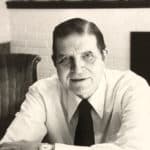
In this excerpt from Tidings of Comfort and Joy: 25 Devotions Leading to Christmas, Mark Yarbrough shares a reflection about the promises Jesus fulfills as the eternal king of God’s people.
In this recent interview with Yarbrough, he explains how a devotional provides structure for reflection during this season:
My best buddy in kindergarten was a kid named Blake. We were the proverbial dynamic duo. On the school playground, our favorite game was King of the Hill. The goal of the game was easy: you saw how long you could stay on top of the hill without getting pushed off and dethroned. When on top, you were king, and it was there you had prestige. We were good, and I was king with Blake’s assistance. But then at midterm, Shawn moved into our class.
Shawn was a man-child with massive muscles. I’m quite certain he was already wearing deodorant and shaving at the age of five! Shawn also liked playing King of the Hill, and he could ascend to the top with ease. After watching him for several days, Blake and I hatched a scheme to remove him from power. It was simple: we would attack from both sides of the hill. When the moment arrived, Blake’s attack was seamless. However, as I came around the other side full speed, I tripped and catapulted up the hill like a windmill. Startled by my own movement and emotion, I went full-blown ninja on the other guys on the hill and ran smack-dab into Shawn, who launched ten feet off the hill. It was then I felt a hand on my shoulder. Without looking, I swung my elbow around with full force … and hit Blake squarely on his honker! He flew down to the ground on his back. A trickle of blood came out of his nose. At that moment, time stood still. Everyone froze except Blake. He arose and walked up the hill to me and said, “You don’t make a very good king.”
I’ve recounted this story for years because it reflects life, doesn’t it? The reality is that no fallen human ever makes a completely good king because there is always a competing allegiance for position and power. Even upon arrival or appointment, all stations in life are temporary. On this side of eternity, time is fleeting. It passes quickly like sand sifting through one’s hands. It slides away, and there is no way to grasp it.
The children of Israel were no different. They were called to be unique among the nations because God was to be their king. However, as their gaze transferred from him to the world, they cried out for an earthly king like other nations. Without God’s full approval, they chose Saul. While things started well for him, they ended poorly. Yet God had other plans for his people through the line of Judah, through David, Israel’s second king.
On one occasion while the nation was at peace, David wanted to build a permanent dwelling for God, in contrast to the temporary tabernacle that had existed since the time of Moses. Specifically, he wanted to build God a “house.” In Hebrew, the word is בַיתִ , pronounced “buy-it.” In a shocking turn of events, God informed David that he would not be the one to build him a בַיתִ , but instead, God would build David a בַיתִ . Specifically, the Lord said, “The Lord declares to you that the Lord himself will establish a house [ בַיתִ ] for you” (2 Sam 7:11). After additional promises, the Lord said to David, “Your house [ בַיתִ ] and your kingdom will endure forever before me; your throne will be established forever” (2 Sam 7:16).
This entire unsolicited promise from God to David (7:5–16) is known as the Davidic covenant. It is an unconditional commitment from God to the line of Judah, through David, promising an eternal king over Israel. This promise speaks of not only a house, but a kingdom and a throne. It is here that God pledges the arrival of his Messiah through David’s lineage. The house that God promised was not simply a place; it was a person.
This person is the Christ-child of Bethlehem—the greatest Son of David.
When this news was pronounced to a young girl in Nazareth, the Lord God did not mince words. Apparently, Gabriel had it down pat and had likely rehearsed his words in the halls of heaven, clearly connecting the promises to all the patriarchs—and David. And now Gabriel said it would be fulfilled in Bethlehem, the city of David. His announcement connected all the dots. He said,
“Do not be afraid, Mary; you have found favor with God. You will conceive and give birth to a son, and you are to call him Jesus. He will be great and will be called the Son of the Most High. The Lord God will give him the throne of his father David, and he will reign over Jacob’s descendants forever; his kingdom will never end.”
Luke 1:30–33
After Bethlehem, King Jesus charged another hill; not in quest for power, but with the purpose of laying down his life. As his name means, he will save his people from their sins. Although his life was given for us, he was raised from the dead and is now awaiting the day when he shall rule over Israel and all the world, as a holy, righteous, eternal king.
Merry Christmas, dear friends! Today we await his return, the second advent, because it completes his first.
Advent Application
Read and reflect on Revelation 19:11–22:21.
Scripture is clear concerning two promised advents of the Messiah. We celebrate and commemorate the first advent of Jesus each Christmas. He alone fulfills the promises of God. To be specific: Jesus is the fulfillment of all of the Old Testament covenant promises. However, Jesus has yet to fulfill all of the Old Testament covenant promises. We await his return to planet Earth to righteously rule from Israel, in Jerusalem, and thus fulfill his promises. This will then lead to God’s unquestioned rule over all things in a new heaven and a new earth.
Prayer
O great and mighty God, thank you for being a promise keeper and a God who keeps his word from beginning to end. Thank you for making promises to those, like David, who do not deserve it. I am also undeserving, and you have showered me with grace through the love and sacrifice of our Savior. Lord, our world is full of pain. I trust you. During the celebration of this advent season, while remembering our Messiah’s first arrival, I certainly await his return. I look forward to his righteous rule that will lead to a new era. I look with anticipation to that day when “no longer will there be any curse. The throne of God and of the Lamb will be in the city, and his servants will serve him” (Rev 22:3). Until then, I celebrate the true King of the hill. Jesus is his name. Amen.
This post is adapted from Tidings of Comfort and Joy: 25 Devotions Leading to Christmas by Mark Yarbrough (Kirkdale Press, 2021).







